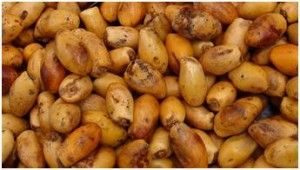
Although the report states food losses are high in both industrialized and developing countries, it distinguishes between the two groups, stating that “food losses in industrialized countries are as high as in developing countries, but in developing countries more than 40 percent of food losses occur at post harvest and processing levels, while in industrialized countries, more than 40 percent of food losses occur at retail and consumer levels.” And, according to FAO, “food losses represent a waste of resources used in production such as land, water, energy and inputs.” FAO also highlights that “producing food that will not be consumed leads to unnecessary CO2 emissions in addition to loss of economic value of the food produced.”
Food prices are dramatically higher this year, nearing record highs that occurred in 2007. The Trade and Markets Division of the FAO, published a Food Outlook Global Market Analysis for June, 2011, which states “over the past twelve months, the cost of the typical food basket around the world has risen 48 percent.” The report further states “the aggregate cost of imported foodstuffs at the world level could reach a record $1.29 trillion in 2011, some 21 percent more than 2010.”
Rising food costs and limited resources mean innovative solutions to food waste and loss are necessary to help farmers and consumers. In Madagascar, for example, the Village Community Granaries project has helped 27,000 small farmers store 80,000 tons of paddy rice, increasing output by 50 percent. The creation and development of marketing and channels for distribution are proposed tools for reducing waste in developing nations. The FAO report concludes “further research in this area is urgent, especially considering that food security is a major concern in large parts of the developing world.”

Danielle Nierenberg, an expert on livestock and sustainability, currently serves as Project Director of State of World 2011 for the Worldwatch Institute, a Washington, DC-based environmental think tank. Her knowledge of factory farming and its global spread and sustainable agriculture has been cited widely in the New York Times Magazine, the International Herald Tribune, the Washington Post, and
other publications.
Danielle worked for two years as a Peace Corps volunteer in the Dominican Republic. She is currently traveling across Africa looking at innovations that are working to alleviate hunger and poverty and blogging everyday at Worldwatch Institute’s Nourishing the Planet. She has a regular column with the Mail & Guardian, the Kansas City Star, and the Huffington Post and her writing was been featured in newspapers across Africa including the Cape Town Argus, the Zambia Daily Mail, Coast Week (Kenya), and other African publications. She holds an M.S. in agriculture, food, and environment from Tufts University and a B.A. in environmental policy from Monmouth College.








